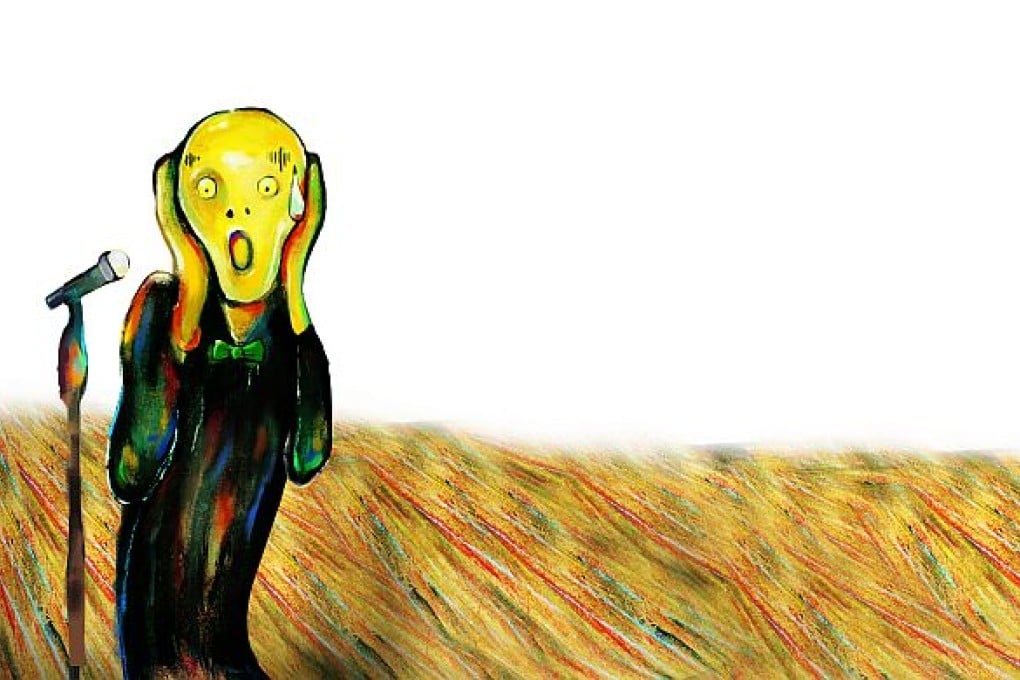So, You Want to Try Stand-Up?
Your friends find your stories hilarious, your iPod is stocked full of stand-up specials, and you already spend most of your time in dark basements—isn’t it about time to get on stage and try it? HK Mag staff writer Sean Hebert spent years working as a pro performer and both headlines and hosts comedy shows in town and around Asia. He shares some hard-earned advice for those who want to be the Hong Kong’s Seinfeld.

Do Your Research, Newbie
Just as an aspiring sex offender must first run for office or become a priest, an aspiring comic must watch comedy. And I don’t just mean that you should cue up your favorite Bill Burr and Stewart Lee albums for the MTR commute; you’ve got to get your ass down to a comedy club and watch the craft done live. Open mic nights are ideal as a study space, because you’ll see both good and bad performers: both are equally valuable to someone starting out. Jot down what you see good performers doing to keep the audience listening and laughing: their pacing, their delivery, even the subtle things like how they stand on stage or use the mic. Then compare them to the bad comics. Are there big red flags you can avoid?
Protip: As a beginner, never let the audience see you sweat. Your job is to entertain the room—not to assure the crowd that you have the self-awareness to provide commentary on how poorly your jokes are going down. Whether you get the expected reaction from a bit or not, keep up the pace of the show and act professional.
Write Some Jokes Already
Every pro comedian writes jokes, even if they’re good enough to look as though they’re just “riffing” on stage, like Louis CK or Dave Chappelle. Google “joke writing,” buy a book, or begin pulling apart material from your favorite comics to see how their jokes are constructed. Then give it a try yourself.
Protip: In general, a joke sets up an expectation and then violates it with a quick twist. The faster you can reach the twist, the better—work to eliminate unnecessary words. Pick a topic you find interesting, and then devise a strategy to best communicate its humor to the audience. Experiment freely: is the punchline funnier if you act it out, rather than just say it?
Now Hit the Stage
Your bathroom mirror is polite enough to listen, but unless your weed is stronger than mine, it seldom laughs. Once you’ve got enough on paper to try doing a 3-5 minute set, head down to one of Hong Kong’s weekly open mics (see below) and put your name on the list. It’s a big step to take, but once you get up and earn that first laugh, it’s addictive. You’ll crave that feeling again—even when you go up the second time and bomb. Remember that stand-up is a war of attrition. You only get better by performing, and you’ll only perform often enough to improve if you love doing it.
Protip: While everyone’s style on stage is bound to be different, you’ve got to embrace the fact that trying to be funny involves risk. Vulnerability gets laughs. Acting cool and pretending you’re above the whole exercise does not. Let the audience see that you are going out on a limb and really sell your jokes—it’ll warm them to you.
